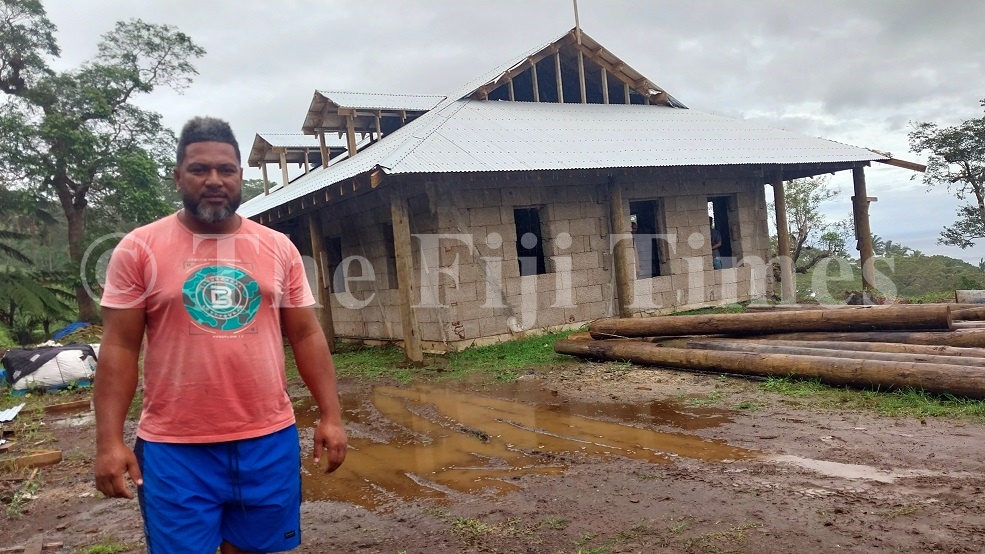It could be the first house built in Fiji from industrial hemp and sits on the Garden Island of Taveuni.
Built by Cat 5 Builders, a Taveuni-based company, the hemp blocks were imported from France.
The hemp blocks, also known as hempcrete is designed like legos (kids toys) in which the carpenters fit the blocks together and use fibre glass steel for structural reinforcement.
Company director Toga Kalougata, a well-known builder on the island said the materials were very different from the common concrete blocks used locally.
“This project of dealing with hempcrete is the first time for me and I am glad because it widens my knowledge in the field of construction,” he said.
“I have built houses for many years with different materials but this is the first time for me to handle hempcrete material.
“This material is very different and faster to build as we took four days to put up the frame of the house compared with blocks which takes a longer time.”
Mr Kalougata said the hemphouses were fire resistant and provided a cool surrounding during hot season.
“We tested a few blocks by setting it on fire and it withstood the flames for 120 minutes and had no smoke, no flames coming from it except the black spot it leaves,” he said.
“It does not crack compared with concrete and is cooler to live in.
“The ‘finish touch’ to plaster the walls will be powder from limestones and that’s natural as well so I think we should start moving in this direction. This will be mixed with seashells and corals from the sea to plaster the walls.”
However, he said importing the product wasn’t easy as it involved high costs and more time to reach Taveuni.
“We are working for a couple who own the property and they have arranged the shipping of the materials from France,” he said.
“It will be good for our Government to consider these building materials and set up a factory in Fiji because it’s cheaper, faster and natural.”



